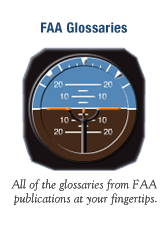FAA Medicals—When are they required?
Certificates
14 CFR §61.23 Medical certificates: Requirement and duration.
- (a) Operations requiring a medical certificate. Except as provided in paragraphs (b) and (c) of this section, a person—
- (1) Must hold a first-class medical certificate when exercising the privileges of an airline transport pilot certificate;
- (2) Must hold at least a second-class medical certificate when exercising the privileges of a commercial pilot certificate; or
- (3) Must hold at least a third-class medical certificate—
- (i) When exercising the privileges of a private pilot certificate;
- (ii) When exercising the privileges of a recreational pilot certificate;
- (iii) When exercising the privileges of a student pilot certificate;
- (iv) When exercising the privileges of a flight instructor certificate and acting as the pilot in command;
- (v) When exercising the privileges of a flight instructor certificate and serving as a required pilot flight crewmember;
- (v) When taking a practical test in an aircraft for a recreational pilot, private pilot, commercial pilot, or airline transport pilot certificate, or for a flight instructor certificate; or
- (vii) When performing the duties as an Examiner in an aircraft when administering a practical test or proficiency check for an airman certificate, rating, or authorization.
- (b) Operations not requiring a medical certificate. A person is not required to hold a valid medical certificate—
- (1) When exercising the privileges of a student pilot certificate while seeking—
- (i) A sport pilot certificate with glider or balloon privileges; or
- (ii) A pilot certificate with a glider category rating or balloon class rating;
- (2) When exercising the privileges of a sport pilot certificate with privileges in a glider or balloon;
- (3) When exercising the privileges of a pilot certificate with a glider category or balloon class rating;
- (4) When exercising the privileges of a flight instructor certificate with—
- (i) A sport pilot rating in a glider or balloon; or
- (ii) A glider category rating;
- (5) When exercising the privileges of a flight instructor certificate if the person is not acting as pilot in command or serving as a required pilot flight crewmember;
- (6) When exercising the privileges of a ground instructor certificate;
- (7) When serving as an examiner or check airman during the administration of a test or check for a certificate, rating, or authorization conducted in a flight simulator or flight training device; or
- (8) When taking a test or check for a certificate, rating, or authorization conducted in a flight simulator or flight training device.
- (1) When exercising the privileges of a student pilot certificate while seeking—
Note that sport pilot, balloon, and glider certificates do not require FAA medicals.
Some interesting things to note about this regulation as it relates to CFIs. CFIs are required to hold a commercial certificate, however they are not required to hold a second-class medical certificate. In fact, they may take the practical tests for commercial and instructor certificates with just a third-class medical. If they are not acting as PIC they do not even require a medical certificate. So, an instructor may give a Biennial Flight Review to a pilot who is current without having a current medical certificate. If they give a flight review to someone who is not current, then they would be acting as PIC and would therefore be required to have a current medical. Likewise, if they are acting as a required crewmember, e.g. safety pilot, then they would be required to have a current medical. If the CFI is instructing in an aircraft that requires two crew members, then a medical certificate is required.
Note the use of the term when exercising the privileges of. A pilot may not act as PIC unless they have a appropriate medical, but they may log PIC time if their medical has expired and an appropriately rated pilot agrees to act as PIC. This is discussed in another article.
14 CFR §61.3 Requirement for certificates, ratings, and authorizations.
- …
- (c) Medical certificate. (1) A person may serve as a required pilot flight crewmember of an aircraft only if that person holds the appropriate medical certificate issued under part 67 of this chapter, or other documentation acceptable to the FAA, that is in that person’s physical possession or readily accessible in the aircraft. Paragraph (c)(2) of this section provides certain exceptions to the requirement to hold a medical certificate.
- (2) A person is not required to meet the requirements of paragraph (c)(1) of this section if that person—…
There are different rules for gliders, balloons, weight-shift, and sport pilots that are covered in the reglualtion that I’ve left out. It can get rather complicated but the regulation is fairly straightforward.
AOPA Weekly Question
Question: Am I required to have a current medical to act as a safety pilot while my friend (who has a current medical) practices instrument approaches?
Answer: Yes, a safety pilot is always required to have a current medical. When operating an aircraft under simulated instrument conditions, FAR 91.109(b) requires a qualified safety pilot be in the other control seat. The safety pilot is considered a “required pilot flight crewmember” and is therefore required to hold at least a current third class medical certificate per FAR 61.3(c)(1), even if that person is not acting as the PIC. For more information, view our subject report.
The FAA will be updating the rules for third-class medicals. This rule is expected to be effective on May 1, 2017 unless the new administration holds it up.


